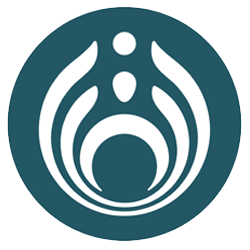R U OK? Day is more than a calendar event – it’s a cultural call to action.
In Australian workplaces, where the pace is often fast and the pressures can be high, genuine check-ins can be easily missed. But behind the deadlines and team meetings are real people – your colleagues – who might be struggling silently.
That’s why R U OK? Day matters. It reminds us of the power of a simple question: “Are you OK?” – and more importantly, how to ask it in a way that opens the door to real connection and support.
If you’re a leader, HR professional, or simply someone who cares, knowing how to have meaningful mental health conversations at work can make all the difference. In this article, we’ll explore how to carry the spirit of R U OK? Day into everyday practice – and how your workplace can become a safe, supportive space where everyone feels seen, heard, and valued.
Looking out for each other: More than a feel-good gesture
Creating a culture where employees genuinely look out for one another’s mental wellbeing isn’t just good ethics – it’s smart risk management. In fact, it directly supports your organisation’s ability to identify and reduce psychosocial hazards before they escalate into psychological harm or lost productivity.
Psychosocial hazards – like poor support, low role clarity, high workloads, or workplace conflict – are often experienced subtly at first. When employees are empowered and skilled to check in with each other, these signs surface sooner. An early “Are you OK?” can be the catalyst for a much-needed conversation that prevents a minor issue from snowballing into burnout, disengagement, or even psychological injury.
R U OK? Conversations as a control measure
When employees are trained to have R U OK? conversations with confidence and care, it effectively acts as a proactive psychosocial hazard control measure. These conversations create a feedback loop that helps leaders and teams:
Detect early signs of stress or struggle
Intervene informally before a formal incident or complaint occurs
Support a culture of openness and reduce stigma around mental health
Strengthen interpersonal trust and team cohesion
This isn’t about turning your employees into counsellors – it’s about equipping them with simple, structured communication skills that contribute to a psychologically safe environment. When used alongside formal supports, like EAPs or wellbeing training, these peer-to-peer check-ins are a powerful line of defence.
So… it makes good business sense too.
How to have an effective R U OK? conversation
You don’t need to be a mental health expert to support someone you work with. You just need to be a good listener, approach with care, and follow a simple framework. The R U OK? conversation model makes it easy:
Ask R U OK?
Pick a good time and a private place, and try to make it natural. Be relaxed and open. If you’ve noticed a change in someone’s behaviour or mood, mention it gently – “I’ve noticed you’ve seemed a bit flat lately, is everything okay?”Listen with an open mind
Give them your full attention. Don’t rush to fix or judge – just let them talk. Show that you’re listening through your body language and responses: “That sounds really tough” or “Thanks for sharing that with me.”Encourage action
Help them think about one small step they could take, whether that’s talking to a manager, accessing EAP support, or seeing their GP. If they’re not ready, that’s okay – just keep the door open.Check in
Follow up in a few days. Let them know you care and are available to talk again. This reinforces that they’re not alone and builds trust.
This simple approach helps create psychological safety – a key protective factor against psychosocial risks in any workplace.
What signs should you look out for?
Sometimes the signs that someone is struggling are subtle. Pay attention to changes in:
Behaviour – withdrawal from others, irritability, or changes in communication
Mood – unusually flat, anxious, or overwhelmed
Appearance – looking tired, unwell, or less put-together
Performance – drop in productivity, missed deadlines, or uncharacteristic errors
Noticing these changes—and having the courage to ask – could make all the difference. It’s about building a culture where everyone feels safe to speak up and supported when they do.
Resources to Support Mental Health Conversations at Work
Access more from these trusted sources
Equip your team with tools to start, sustain, and support meaningful check-ins:
R U OK? Workplace Resources – Free guides, posters, toolkits, and more.
Worksafe Queensland – Tools for managing risks and creating mentally healthy work environments.
SafeWork NSW – Practical guidance for building safer, more supportive workplaces.
Safe Work Australia – Psychosocial Hazards – Advice for PCBUs on managing psychosocial risks.
Final thoughts: Every day is R U OK? Day
R U OK? Day is a powerful reminder – but checking in on the people around you should be part of how we do business every day. When you prioritise connection, foster psychological safety, and equip your people to have conversations that matter, you create a workplace where everyone can thrive.
So – who will you be checking in on today?
Ready to take the next step?
Start embedding mental health conversations into your workplace culture.
📩 Get in Touch to access R U OK? Training for your team, workplace wellbeing plans, or leadership coaching. Let’s create a workplace where it’s safe to ask – and answer – R U OK?


